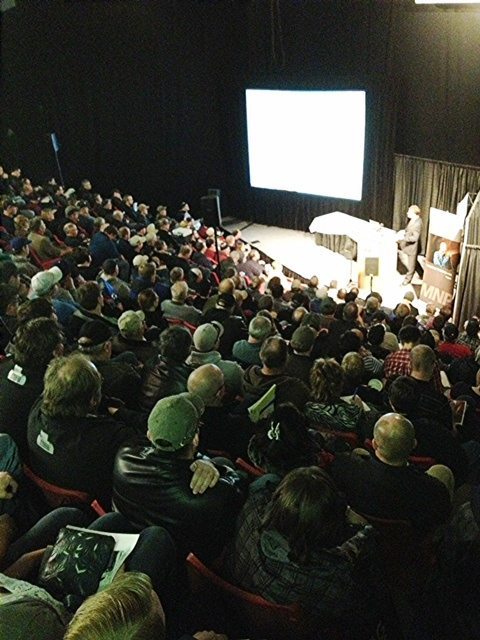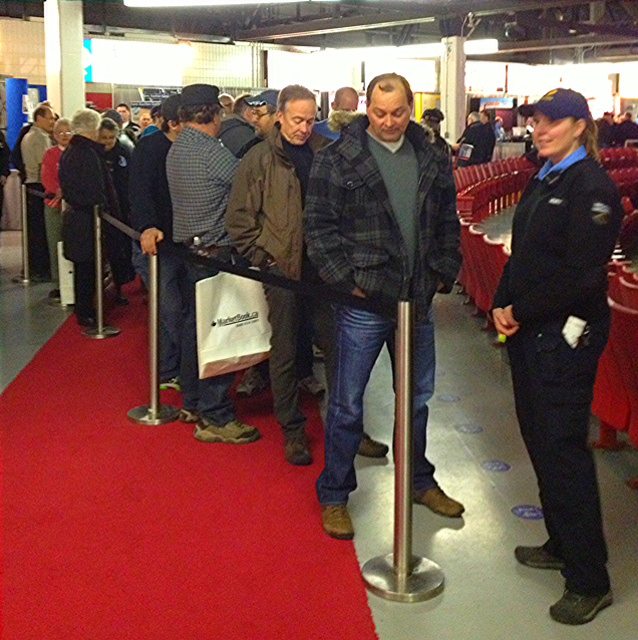Farmers are making plenty of money these days.
That gives them the opportunity to be plenty of stupid.
But at least for hundreds or a couple of thousand farmers at this year’s iteration of Manitoba Ag Days, trying to be not stupid with money seems like a big and healthy concern.
Read Also

Farmer ownership cannot be seen as a guarantee for success
It’s a powerful movement when people band together to form co-ops and credit unions, but member ownership is no guarantee of success.
That’s how I read the standing-room only crowds that greeted financial guru David Chilton and another presentation on what to consider when you’re buying farmland. Many farmers don’t want to blow this boom.
Not everything gets a big turnout at Ag Days. For instance, the provincial agriculture minister’s speech – no matter who it is – tends to be sparsely attended, except by the masses of the provincial ag media, who drool with anticipation of fresh announcements.
Some agronomic sessions, oddly enough, also tend to be sparsely attended. Unless they have to do with operating big iron. Especially sessions on tractor tires.
Market outlook sessions generally fill the halls with farmers wanting to hear that the market is going to rally in the next year.
And cooking demos – like the Manitoba Canola Growers and Canola Council of Canada sometimes put on – bring in many, many people, including far more women than are usual in the male-dominated regular stuff.
But for Chilton and the land purchasing sessions the crowds seemed, to me anyway, unprecedented. Chilton, who wrote “The Wealthy Barber” and who is apparently on the Dragon’s Den CBC television program, inspired enough interest to cause the normally divided sections of the forum-like south end of the hockey arena to be combined and for security guards to be brought in to police the long, long lines of hopeful listeners who queued up for half an hour to hear the man talk.
For the land talk, people filled the seats, sat on the concrete stairs and clustered around the rear exits, craning their heads and ears wondering what the heck the guy just said. I was sitting on the concrete stairs for the latter session.
Both speakers focused on how people stumble into bad financial decisions. Chilton was particularly pithy and engaging about the culture of debt-financed super-consumption that many Canadians now embrace uncritically. Granite countertops? A requirement for many folks these days. Heated floors? Ditto. Etc. etc. etc. All done with lines of credit and other forms of borrowed money. At one time people “saved-up” for stuff. Now that phrase is seldom heard.
Canada’s relative prosperity has allowed Canadians, much as Americans did until 2008, to finance the purchase of all sorts of stuff that they don’t have cash for. That’s dangerous. And Canadians are doing it without building up the savings needed to finance reasonable retirements.
Chilton noted that farmers seemed less given to the types of ridiculous expenses he sees with some people, but that this might change because of good times in ag.
That highlights one of the themes I’ve noticed in the past few years at farm shows: the escalating price of farmland and whether this is insane. Every year farmland prices soar some more, and every year people chatter about them and whether things have gotten ridiculous.
As Dan Caron of Manitoba Agriculture noted last week at St Jean Farm Days, farmland has been a wonderful investment over the past 25 years, but present prices are frighteningly high. If high grain prices can be assumed to last for years, then expensive farmland can still seem like a reasonable investment. And with rent prices also sky-high, paying on a mortgage can make more sense than paying a landlord. But so much counts on future profitability of farming and whether it will be big enough and last long enough to pay off those mortgages. That’s what’s got to be calculated. And calculating future crop prices is . . . difficult.
To me that’s a fascinating situation. You can see farmer purchases of expensive farmland as farmers reinvesting in their farms and piling up savings. If buying farmland is the rural equivalent to investing in RRSPs, then Chilton would probably be pleased seeing farmers aggressively buying farmland with today’s profits. That’s the “saving” thing that other Canadians have forgotten, a piggybank that can be broken open at retirement.
But if the land is far overpriced, as some speculate, and farmers are chasing prices higher in a form of bubbly mania as happened with residential real estate in the U.S. until 2008 and might still be happening in Canada, then instead of savings, farmland purchases can be seen as the farmer version of buying granite countertops for the kitchen and installing heated floors in the bathroom. If crop prices fall into a lower range in the future, or interest rates spike, some of today’s land purchases might seem a tad silly in retrospect.
So, what do you think it is: farmers making wise investments and piling up savings, or farmers blowing their cash on expensive luxuries? Is high-priced farmland a granite countertop, or an RRSP?


















